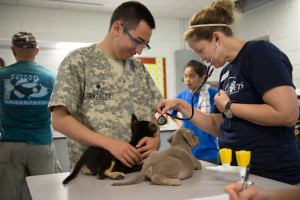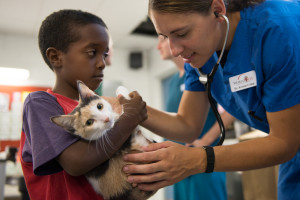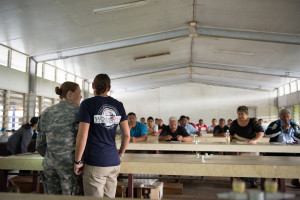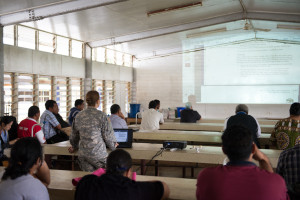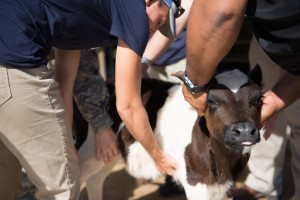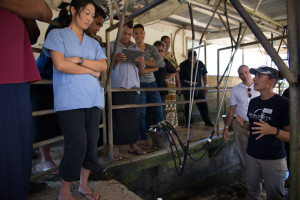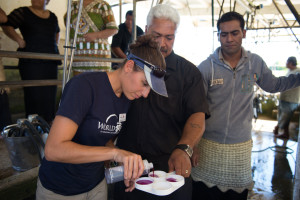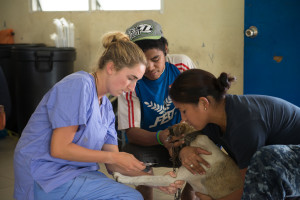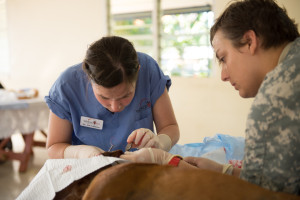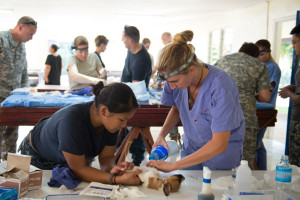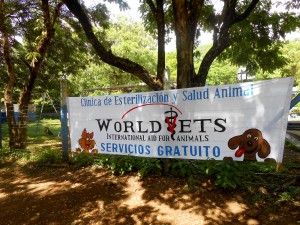
Photo: Katie Horn/World Vets
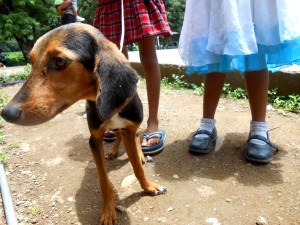
Photo: Katie Horn/World Vets
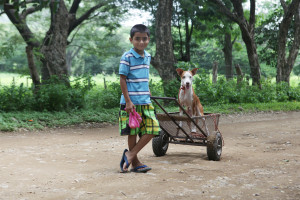
Photo: Van Olsen Photography
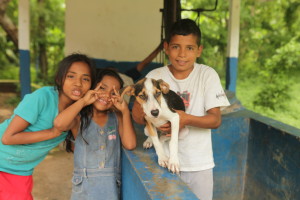
Photo: Van Olsen Photography
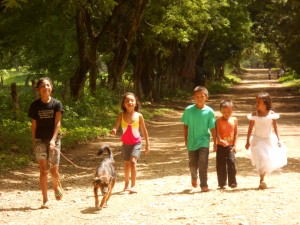
Photo: Katie Horn/WorldVets
As World Vets team pulled up to the local school, which was to be our clinic site, piglets and chickens were busy foraging on the school grounds. Unafraid of our presence they continued about their daily routine. As we proceeded to set up our work stations we were greeted by a donkey that happened to preside over a family’s small agricultural plot next door. He provided constant reminders of his presence, “hee – haw”, that enticed many of us to go see him throughout the work day.
As veterinary services got underway, children and grown men dressed in their Sunday’s best began to form a line around the registration desk. Dogs were brought to us in handbags, on carts and wheelbarrows and cats surprisingly enough were carried in on string leashes or in cardboard boxes. Half came to us to receive spay/neuter surgery and the other half for health consultations
Until recently World Vets had not set up a direct veterinary service campaign in this particular community. Located 25 minutes or so outside of the main town of San Juan del Sur, the rural community of Escamequita is a world of its own. In contrast to town, houses are scattered over considerable distances and made from all kinds of materials; from wood to metal scrap and/or brick. All animals, including dogs, pigs, chickens and turkeys roam free, yet everyone knows which house they belong to. Furthermore, potable water may only be accessible from a well and during the rainy season the only road to and from Escamequita may be washed out, limiting contact with town and its subsequent products and services.
Even though World Vets had never visited the area before, the animals of Escamequita have quite a history with World Vets and the services we have provided in San Juan del Sur over the years. This has much to do with concerned and kind hearted expatriates who also live in the area. Without hesitation, they have rallied local households and loaded up their trucks with animals, accompanied by their owners, to receive our services, wherever they would be provided. The animals brought to us in their vehicles were always the ones that had the worse body conditions and needed the most TLC from our teams.
After years of their dedication and demand for veterinary care, it made perfect sense to bring our services directly to them. Our recent campaign in Escamequita has acted to harness this growing awareness of animal welfare and responsible pet ownership, especially amongst the young population. Many animals from the original “truck loads” were first brought to us to receive spay/neuter surgery. Now we happily welcome them back for follow up medical treatments. And wouldn’t you know it; they were some of the healthiest looking bunch during our recent campaign!
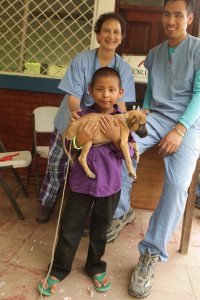
Photo: Van Olsen Photography
Our visit to Escamequita has also served to further promote the concept of animal wellness, specifically for new pet owners who had not previously sought out our services either due to distance and/or logistics. In consultations we saw one young boy who brought his puppy for a check up and to receive preventative health treatments. This is the first step we explained, to being a responsible pet owner, and his father proudly agreed.
More than anything our veterinary services in rural communities such as Escamequita provide the means for individuals to care for and be responsible pet owners. It is a huge misconception that people in foreign countries simply do not care for their animals. They do! This young boy is but one example.
All of World Vets veterinary services are provided free of charge
Story write up: Katie Horn, World Vets International Programs Manager
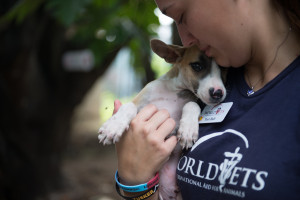 In a recent TED talk, World Vets CEO Dr Cathy King discusses the worldwide street dog problem and how World Vets is making a difference. It also provides an overview of the scope of World Vets work and programs.
In a recent TED talk, World Vets CEO Dr Cathy King discusses the worldwide street dog problem and how World Vets is making a difference. It also provides an overview of the scope of World Vets work and programs.



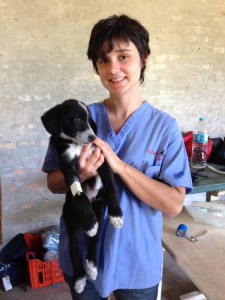 With support from Fondation Brigitte Bardot, a World Vets team has been busy providing a large scale spay/neuter and animal health clinic in poor areas of Asuncion.Our free services are being provided in collaboration with local animal welfare organization “Adoptame” as well as members from national veterinary associations such as AMVEPA and UNASUR.
With support from Fondation Brigitte Bardot, a World Vets team has been busy providing a large scale spay/neuter and animal health clinic in poor areas of Asuncion.Our free services are being provided in collaboration with local animal welfare organization “Adoptame” as well as members from national veterinary associations such as AMVEPA and UNASUR.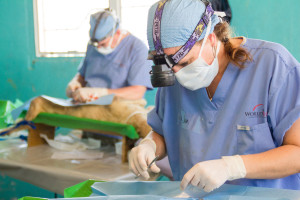 After much anticipation, select 2014 project locations have been announced on our `
After much anticipation, select 2014 project locations have been announced on our `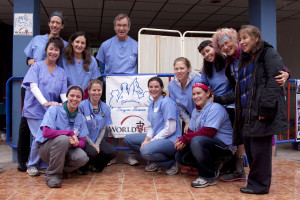 At the end of August a World Vets team provided a large scale spay/neuter clinic in the city of Cusco, Peru. Services were carried out in collaboration with local partners Pataz Pro Animalista Cusco, Clinica Veterinaria Lazzy Vet and a handful of local veterinarians and volunteers representing these entities. We thank everyone for the great effort that went into providing the three day campaign despite the cold weather! We also thank Fondation Brigitte Bardot for their continual support of our spay/neuter program in Cusco. See pictures
At the end of August a World Vets team provided a large scale spay/neuter clinic in the city of Cusco, Peru. Services were carried out in collaboration with local partners Pataz Pro Animalista Cusco, Clinica Veterinaria Lazzy Vet and a handful of local veterinarians and volunteers representing these entities. We thank everyone for the great effort that went into providing the three day campaign despite the cold weather! We also thank Fondation Brigitte Bardot for their continual support of our spay/neuter program in Cusco. See pictures 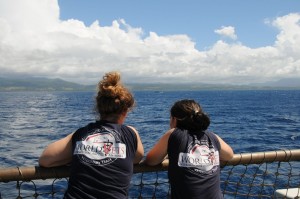 From May until mid August, World Vets had ten volunteer veterinary professionals deployed on the civil- military mission “Pacific Partnership.” They traveled on board a US Navy ship and provided free veterinary and educational services alongside US Army veterinary personnel. Together we provided services in five South Pacific nations which include
From May until mid August, World Vets had ten volunteer veterinary professionals deployed on the civil- military mission “Pacific Partnership.” They traveled on board a US Navy ship and provided free veterinary and educational services alongside US Army veterinary personnel. Together we provided services in five South Pacific nations which include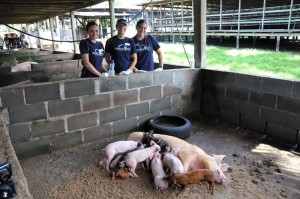 3000 teaching hours provided to host nation participants.Pacific Partnership is an annual U.S. Pacific Fleet humanitarian and civic assistance mission designed to work by, with and through host and partner nations, non-government organizations and international agencies to build partnerships and a collective ability to respond to natural disasters. World Vets has been the veterinary NGO represented on this mission since 2009.
3000 teaching hours provided to host nation participants.Pacific Partnership is an annual U.S. Pacific Fleet humanitarian and civic assistance mission designed to work by, with and through host and partner nations, non-government organizations and international agencies to build partnerships and a collective ability to respond to natural disasters. World Vets has been the veterinary NGO represented on this mission since 2009. 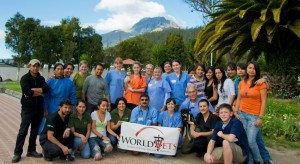 On our recent visit to Otavalo, Ecuador, a World Vets team provided a large scale spay/neuter campaign with local partners, PAE – Ibarra. We were also joined by a few veterinarians from PAE -Quito who aided our team during the three day campaign. Together our efforts resulted in a record breaking number of surgeries being performed: 268 spay/neuter surgeries.
On our recent visit to Otavalo, Ecuador, a World Vets team provided a large scale spay/neuter campaign with local partners, PAE – Ibarra. We were also joined by a few veterinarians from PAE -Quito who aided our team during the three day campaign. Together our efforts resulted in a record breaking number of surgeries being performed: 268 spay/neuter surgeries. 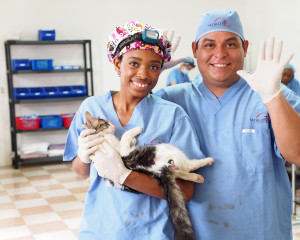 ATTENTION STUDENTS!
ATTENTION STUDENTS!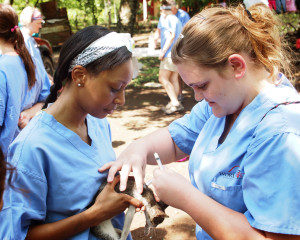 Veterinary Training Center in Granada, Nicaragua, it provides international students with an opportunity to gain practical veterinary experience. Students read more
Veterinary Training Center in Granada, Nicaragua, it provides international students with an opportunity to gain practical veterinary experience. Students read more 